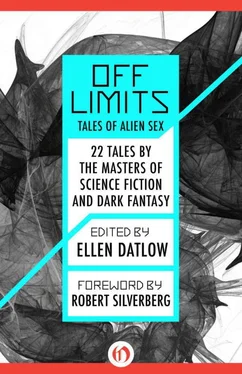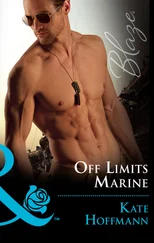“Just where the hell do you think you’re going, Anna?” Isabel demanded, hotly. “Just what the hell do you think you’re going to do?” That was Isabel all over: repetition and resentment, with plenty of hell thrown in.
“There’s something I need to do,” Anna said, unhelpfully. She had no intention of spelling it out. Isabel would protest violently just as surely as the doctors would have done. Unlike the doctors, though, Isabel was easy to manipulate. Isabel had always been scared of Anna, even though she was two years older, two inches taller, and two stones heavier. Now that Anna was a shadow of her former self, of course, it was more like four stones—but that only increased Anna’s advantage.
“I won’t do it,” Isabel said, although the hopelessness of her insistence was already evident.
“I can do anything I like,” Anna said, reflectively. “It’s one of the perks of being mad and bad—you can do anything you like, and nobody’s surprised. I can’t be punished, because there’s nothing they can take away that I haven’t already lost. I could do with a hundred pounds, but fifty might do in a pinch. I have to have cash, you see, because people with scrambled brain chemistry aren’t allowed smartcards. Fortunately, there’ll always be cash.” As long as there were outposts of the black economy that weren’t geared up for laundering, there’d be cash—and everybody in the world was engaged in the black economy in some fashion, even if it was only token tax-dodging.
“I don’t like being used,” Isabel said, frostily. “I agreed to take you out for the day because you asked me to, and because the doctors thought it would be a good idea—a significant step on the way to rehabilitation. I won’t stand for it, Anna. It’s not fair.”
Since she was six years old Isabel had been complaining that “it” wasn’t fair. She had never quite grasped the fact that there was no earthly reason for expecting that anything should be.
“There’s bound to be a cash-dispenser at Vauxhall,” Anna said. “Fifty would probably do it, if that’s all you can spare. I’ve lost track of inflation since they put me in the loony bin, but money can’t have lost that much value in three years.”
Isabel braked and pulled over to the side of the road. She was the kind of person who couldn’t drive and have a fit at the same time. Anna could tell that her sister was upset because she’d stopped on a double yellow line; normally, she’d have looked for a proper parking place.
“What the hell is this about, Anna?” Isabel demanded. “Exactly what have you got me into? If you’re using me as an alibi while you abscond from the hospital, I’ve a right to know.”
“I’ll be back on time,” Anna assured her. “No one will ever know, except your husband and children. They’ll probably be disappointed that they aren’t going to meet your mad, bad, and dangerous-to-know foster sister, but they’ll get over it. You can bring them in one day next week, to make up for it. I’ll be as nice as pie, psychochemistry permitting.”
“ What is this all about? ” Isabel repeated, pronouncing each word with leaden emphasis, as if to imply that Anna was only ignoring her because she was too stupid to know what the question was.
“There’s something I have to do,” Anna said, nobly refraining from adopting the same tone. “It won’t take long. If you won’t give me the fifty pounds, can you at least let me have enough for a Travelcard. I have to go all the way across town to zone four.”
Anna knew as soon as she’d said it that it was a mistake. It gave Isabel a way out. She should have hammered on and on about the fifty until she got it. In the old days, she’d never have settled for a penny less than she’d actually wanted, whatever kind of client she was dealing with.
Isabel reached into her purse and pull a handful of coins out of its dusty depths. “Here,” she said, as if to say, It’s all you’re worth, you stupid, fouled-up slut. “If you want to go, go—to hell if you want to—but if this goes wrong, just don’t try to blame me. And take your medication.” Long before she arrived at the last sentence she had reached across Anna to open the passenger door, so that she could mark her final full stop with one of those dismissive pushes that Anna remembered all too well.
Anna submitted to the push and got out of the car, even though she was only vaguely aware of where she was. She waited until Isabel had driven off before she asked for directions to Clapham Common. It was a long way, but not too far to walk even for someone in her debilitated condition. The value of the coins was just adequate to buy a Travelcard.
She wondered if things might have been different if she’d had a real sister, but she decided that they probably wouldn’t have been.
It wasn’t difficult to find the church from Pinner tube station. It was larger than she had expected. She was glad that the funeral announcement in the Guardian had given both time and place; so many didn’t, because the people who placed them were afraid of being burgled while they were at the ceremony. She waited until everyone else was inside before she sidled in, but she didn’t escape notice. Several people turned around, and whispers were exchanged.
When the service was over and the pallbearers carried the coffin out Anna moved behind a pillar, but the people who filed out behind the dead man knew perfectly well that she was there. She didn’t go to the graveside; she stayed in the shadow of an old horse chestnut tree, watching from thirty yards away. She couldn’t hear what the vicar was saying, but that didn’t matter. She could have improvised her own service if she’d wanted to, complete with appropriate psalms. Every bedside locker on the ward had a Bible in the top drawer, and boredom had made her dip into hers more frequently than she liked to think. She knew that according to The Book of Ecclesiastes it was better to go to the House of Mourning than the House of Feasting, but she wasn’t sure that Ecclesiastes had been in a position to make a scrupulous comparison, and he hadn’t mentioned the House of the Rising Sun at all, although it would have made a better play on words if he had. Ecclesiastes had also offered the judgment that a good name was better than precious ointment, but Alan certainly wouldn’t have agreed with him on that point.
Anna had no difficulty picking out Alan’s wife, although she’d never seen a photograph. She was a good-looking woman, in a middle-class Home Counties sort of way. Her name was Christine, but Alan had usually referred to her as Kitty. Anna was mildly surprised that Kitty wasn’t wearing a veil. Weren’t widows supposed to wear veils, to hide their tears? Not that the woman was weeping; grim forbearance seemed to be more her style. Anna judged her—on the basis of an admittedly superficial inspection—to be a kind of upmarket Isabel, who probably did believe, with all her heart, that a good name was infinitely to be preferred to any kind of balm that cunning cosmetic engineers could devise.
In the grip of a sudden surge of anguish, Anna wished that Isabel hadn’t been so tight-fisted. If Isabel had given her a hundred pounds, or even fifty, she’d have been able to bring a wreath to add to the memorials heaped about the grave. So far as she could judge at this distance most of the mourners had gone for natural blooms, but she would have selected the most exotic products of genetic engineering she could afford, to symbolize herself and the crucial contribution she had made to Alan’s life—and, presumably, his death.
Anna had no doubt that the accident hadn’t been entirely accidental; even if it hadn’t been a straightforward deceptive suicide, it must have been a case of gross and calculated negligence.
Читать дальше












